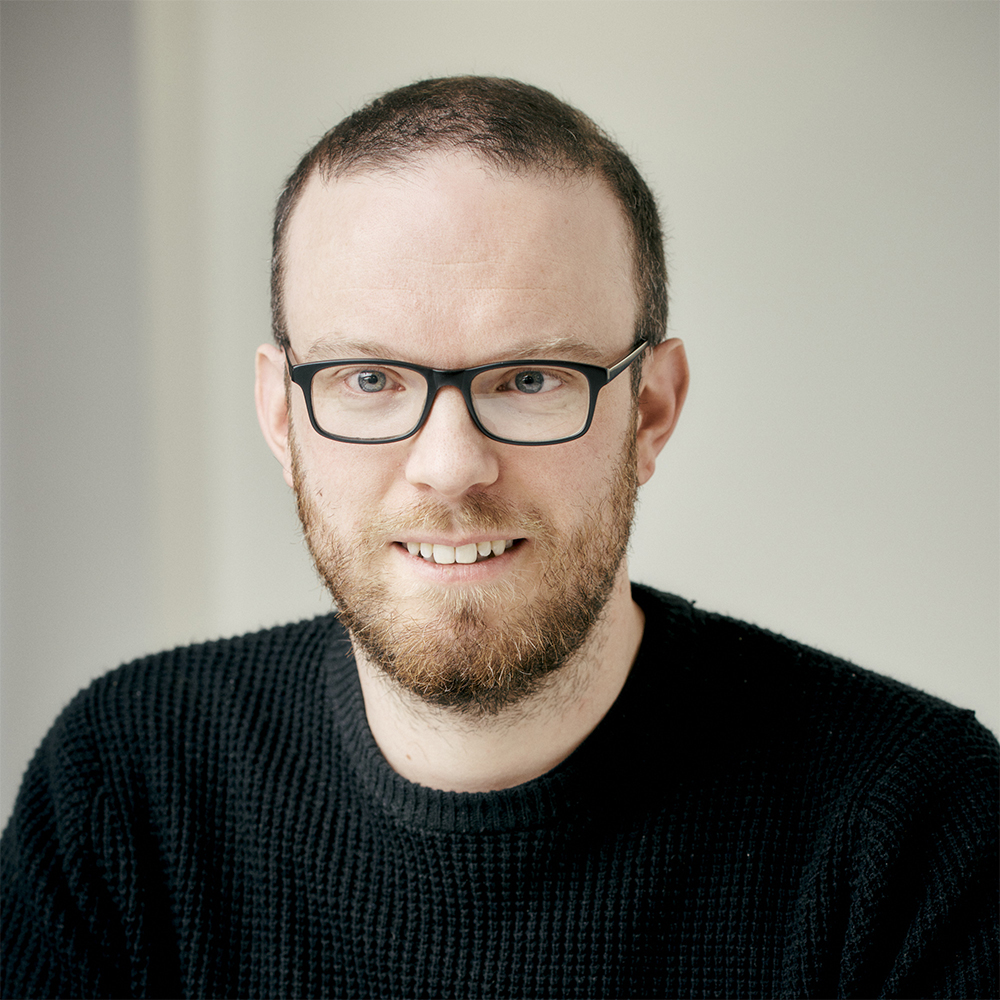It feels like we're regularly updated with new statistics on the number of people who believe in UFOs and the idea that aliens in spacecraft have visited Earth.
Yet the notion that there could be life beyond Earth is not so hard to believe.
Astronomers estimate there are 100 - 400 billion stars in our Milky Way galaxy alone, and exoplanet researchers calculate there is at least one planet orbiting every star we see in the night sky.
This makes the chances of alien life existing elsewhere in the Universe seem very likely.
Read our interview with historian Greg Eghigian on the history of flying saucer and UFO reports.
But what about ufology, flying saucers and alien abductions? What makes people believe in UFOs and other unexplained phenomena?
Psychologist Chris French's latest book is called The Science of Weird S*t and explores these very questions.
We got the chance to speak to Chris about his research into strange phenomena to get a psychologist's view on what makes people believe in UFOs and alien contact.
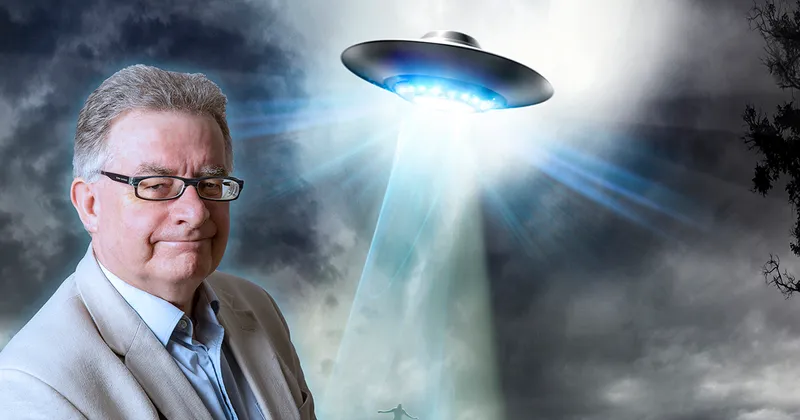
As someone who deals in science, why devote so much time to the paranormal?
I suppose I'd have to go back to my childhood, into early adulthood. I believed in a lot of paranormal stuff.
I was always fascinated by it as a kid and even as a teenager, even when I went to university and did my first psychology degree.
My PhD was not on any of the weird stuff at all. It was all about differences between the cerebral hemispheres and using EEG. It was all very scientific.
And somebody recommended a particular book that I thought I'd like.
It was Parapsychology: Science or Magic? by a guy called James Alcock, a Canadian social psychologist.
It was the first sceptical treatment of any of this stuff that I'd ever come across, and it opened my eyes to this whole new way of thinking about things.
I started at Goldsmiths in 1985 and by that point I counted myself as being a card-carrying skeptic.
I did a couple of lectures on one of the courses on parapsychology from a skeptical perspective, and the students seemed to enjoy it, whether they were believers or skeptics.
It's one of those topics that people get engaged with. And then about 10 years later, I realised I could put on a whole course on this stuff.
So I had a course originally called, I think it was Psychology, Parapsychology, and Pseudoscience, and was occasionally just doing little studies here and there, but still carrying on with the more 'respectable' research.
It was made very clear to me that my interest in the weird stuff was tolerated, but not encouraged!
It got to a point where I thought, well, that's the stuff that really interests me.
There are very good arguments for taking it seriously, because most people statistically believe in at least one paranormal concept.
And a lot of people claim they've had direct experience with the paranormal. So there's something from a psychological point of view that needs to be explained there.
And it can tell us a lot about how the mind works.
So in the end, I ditched all the other stuff and devoted myself entirely to the weird stuff.

Is belief in the paranormal a problem that needs to be addressed, do you think?
When I first discovered the joys of scepticism, I became what I would now see as a fairly extreme sceptic.
I held a lot of views like all kinds of paranormal belief are a bad thing to have, that all people who claim to have psychic powers are either crazy or deliberate frauds, that all parapsychology experiments were flawed, that parapsychologists didn't know how to do science.
I don't believe any of those things anymore.
The the deeper I've got into it, the more I've modified and come back towards the central ground.
Paranormal beliefs can be dangerous insofar as it depends on people's reasons for believing this stuff.
If it's because they lack critical thinking skills, then that opens the door to a lot of other kinds of beliefs that can be potentially dangerous.
For one thing, I'm a sceptic when it comes to complementary and alternative medicine.
And I think that people who practice that, even if they're totally 100% sincere, can sometimes do damage because people might fail to get treated for conditions if they're encouraged to abandon conventional medicine.
That's dangerous. And there are all kinds of other examples you can think of.
People are more likely to be ripped off by con artists pretending to be psychics.
But again, I don't think that most people who claim psychic powers are deliberate con artists, but some of them are.
So there's all kinds of potential dangers there.
On the other hand, there are psychological benefits from believing in the paranormal.
People do take psychological comfort from those kind of beliefs, particularly at times of stress and crisis and so on.
So I think we need to separate the questions of whether or not these paranormal claims are ever true - other things that defy explanation in terms of conventional scientific concepts - from the questions about whether paranormal beliefs and paranormal practices are actually dangerous.
Sometimes they can be, most of the time they probably aren't.

Is there a specific type of person that believes in the paranormal?
There are lots of different factors that come into play.
Personality is one of them, and there are certain personality dimensions that pretty reliably correlate with paranormal belief.
Things like fantasy proneness, a personality dimension called absorption, the kind of tendency that you might have if you're watching a film or reading a book to get totally engrossed in it.
Those things are involved in being very creative and having a good imagination.
Those kind of people are more likely to believe in the paranormal and they're more likely to report paranormal experiences.
But it's not a perfect correlation: far from it.
You might lack all of those quite desirable qualities and still believe in the paranormal, or you might have all of them and not believe in the paranormal.
But if you compare in groups, believers with sceptics, yes, you would find personality variables that correlate with it. But there are all kinds of other factors as well.
Personal experience is an obvious one. There are lots of reasons why people might have genuinely weird experiences that maybe initially they can't explain.
One of the things we're really interested in is the phenomenon of sleep paralysis.
If you have an episode of sleep paralysis, which can involve hallucinations and things like that, if you can't think of any other explanation, well maybe ghosts or aliens seem to be the most logical explanation for it.
It might be that you've been brought up in a family where everybody's a strong believer, and most of us tend to adopt the kind of beliefs of our parents to some extent.
All kinds of factors come into play.

Is there a set psychological approach to addressing beliefs in the paranormal?
Most of the research we did was focused on seeing if we could come up with non paranormal explanations for ostensibly paranormal experiences, and also looking at the factors that correlate with paranormal belief and so on.
And wherever possible, seeing if we could actually put those kinds of skeptical explanations to the experimental tests, the kinds of things that were raised as possible alternative explanations, be it hallucinatory experiences, false memories, reasoning errors or others.
Could we actually produce empirical evidence to support those kinds of explanations?
Most of what we did was in that strand.
But for me, a very important part of skepticism is to always be open to the possibility that you might be wrong.
New evidence might come along that makes you change your mind.
So there was a lesser strand of research where we would directly test paranormal claims.
And in those cases, for those kinds of studies, the way that you test it depends very much on what the claim is.
You design the test around the claim and you make sure that the claimant is happy with the way you intend to test it.
We would go to the lengths of getting them to sign something in advance to say "this is a fair test of my claim" and then when we tested them and they failed the test, they'd decide that it wasn't actually a fair test after all.
That just happened again and again and again, but I think it was also important to show that there is a degree of open mindedness there.
I'm putting my skepticism on the line and putting it to the test, and we'll just see what the data comes out as.
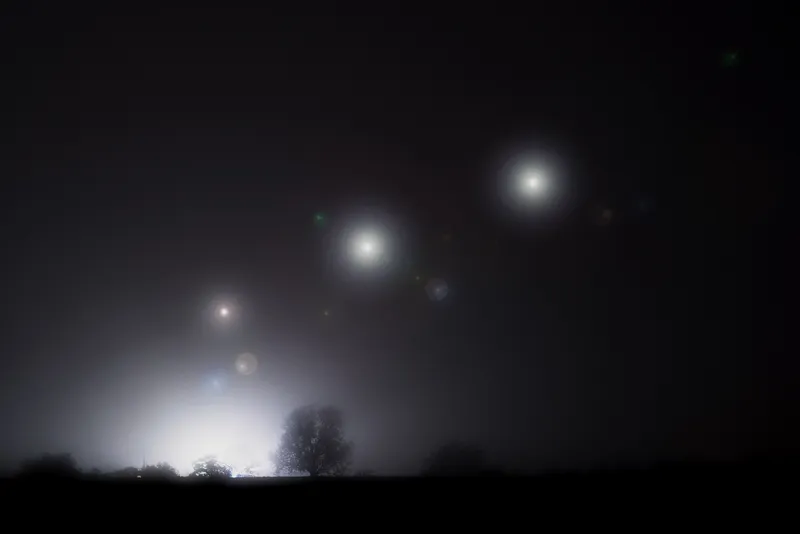
Is belief in UFOs and flying saucers common?
It varies from survey to survey, but you will typically find about a third of people say they believe that aliens have visited the Earth.
And again it varies, but certainly 10%, 15% say they have actually seen a UFO.
Now that raises the question: "what do you mean by UFO?"
Do you literally mean an unidentified object in the sky? Well, fine, I don't have a problem with that.
We can all look up into the sky and not know what we're looking at.
But of course, it's kind of quite interesting that we automatically these days equate UFO with ET, and that's a huge inferential leap.
When you look back historically, 1947 was a golden year. That was the year that the phrase 'flying saucer' entered the English language.
It was the year of the Roswell UFO incident.
And there was a series of what they called UFO flaps at the time, where lots of people were reporting seeing things up in the sky.
But the surveys that were carried out, when they were asking the general public what they thought this phenomenon was, often didn't even include ET as an option.
It wasn't part of consciousness then: it was things like Soviet military technology, a meteorological phenomenon, a celestial phenomenon, whatever else it may be.
And yet now, it would be the automatic go-to explanation for many people.
If they see a light up in the sky and they don't know what it is, it's an ET, it's an alien.
Well of course that's a huge inferential leap.
And ufologists themselves acknowledge that well over 95% of sightings have a mundane explanation.
If you put the time in, you can figure out, well, it was in that part of the sky and it was at that time we know there was a meteorite, or there was a satellite re entry, it's on a flight path for aeroplanes, et cetera.
It's that very small percentage that don't have an obvious explanation that gets people very excited.
But why should we assume we'll be able to come up with a definitive explanation for all possible sightings?
Police can't solve all crimes that they investigate. Sometimes the evidence just isn't good enough for us to be able to decide what it was.
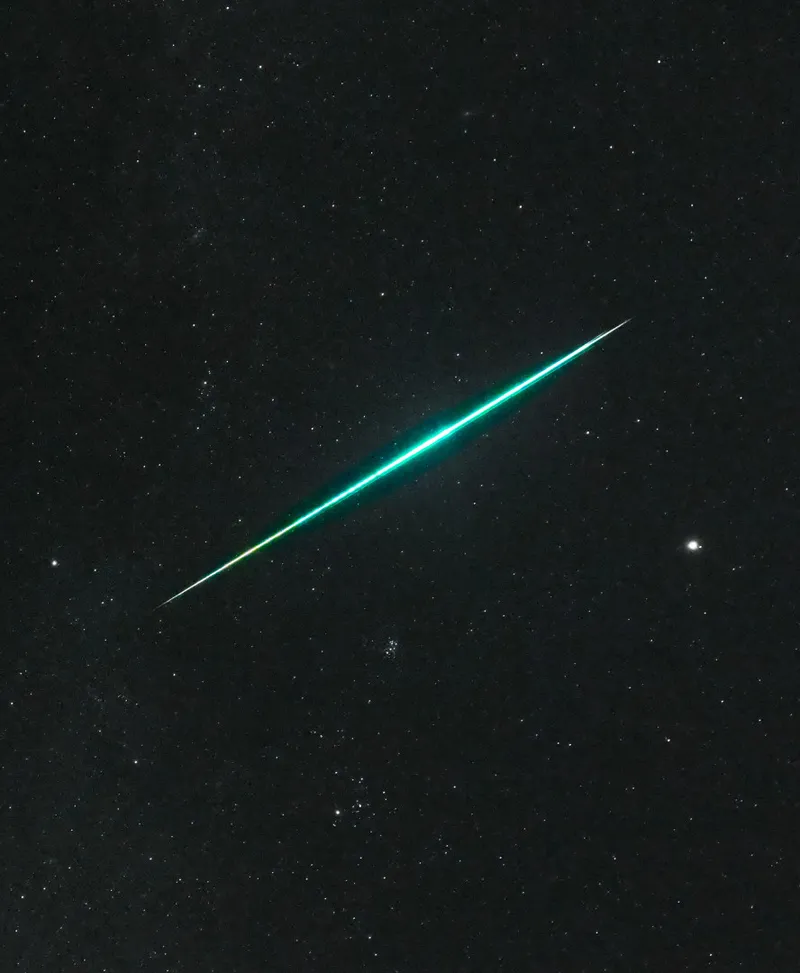
Do you think we would rather believe the more exciting explanation?
Well, I think that's right. Certainly that's why, as a kid and as a teenager, I was into the paranormal.
It wasn't particularly of any great personal experiences I'd had. It's just that it's exciting. It's fun.
And again, people sometimes say, well how arrogant to assume we're the only intelligent species in the universe.
We're not saying that. If I had to bet, on the basis of Drake's equation, yeah, I put my money on there being intelligent life elsewhere in the Universe.
It's a very big place! I'm just not convinced that it's been visiting Earth on a regular basis.
Things from a psychological point of view get really interesting when you go beyond just the sightings, but onto alien abduction claims.
I've met, spoken to a lot of alien abductees, people who in my opinion sincerely believe they have had contact with aliens.
And there's only two possibilities: either they really have, or they haven't and there's something really interesting going on from a psychological point of view.
My favoured explanation tends to be in terms of false memories. But I'm open to the possibility I might be wrong.
It'd be really, really exciting if we do ever make direct contact, but I'm not convinced that we have yet.

Do you find when people claim to have seen a ghost or alien, it's when they were alone at night and rarely in a crowded place during the day?
I'm sure if you were talking to somebody on the other side of the argument here now, they'd be saying, oh, but there are cases where the phenomenon has been witnessed by other people.
And again, you have to look at each case on its individual merits.
Even in those cases where it's claimed there were multiple witnesses, there are often reasons to be rather dubious about the claim that's being made.
By and large, a lot of cases occur when people report they were in bed, and suddenly they felt paralysed, they couldn't move, they felt a strong presence.
And often they don't actually directly see any aliens during this experience.
If they've had that kind of experience, I would put it down to sleep paralysis, which we know all about and there's medical and scientific literature on.
But if they come across some article by a ufologist saying, "if you've ever had this experience, you've been abducted by aliens, and they have wiped your memory for the rest of the experience."
Then they might go to see a hypnotherapist for hypnotic regression under the mistaken belief that going through that will help them to recover hidden or repressed memories.
It doesn't. It just provides the perfect context for the creation of false memories. So you end up with these apparent memories in your head that feel very real.
What about case where multiple witnesses have all seen a UFO?
Even with those multiple witness cases, you have to look at each one individually.
But when you get cases like that, one of the phenomena that's relevant here is something called memory conformity.
And that's a situation where if a group of people all witness something unexpected and unusual, then before there's any kind of formal interview of them, they're likely to discuss it together.
And sometimes you get situations where one person's account can influence another person's memory.
We've done studies on this, not in the context of UFOs particularly, but in the context of spoon bending, where if you suggest to somebody that a spoon is bending right before their very eyes when nobody's even touching it, some people will kind of be affected by that suggestion.
The chances are that, when you get those multiple witness cases in a UFO context, there was something up in the sky.
So, yes, they did all see something, whether it was a metallic craft with little windows and aliens beaming, smiling back at them, or whether it was actually Chinese lanterns or a weather balloon or whatever else it may be.
There are many things that could be mistaken for a UFO.
People can influence each other in those kind of contexts.
So you have to look at each case individually. But then after having done that, you then have to stand back and say well, okay, overall do I think any of these cases are likely to be genuine ET contact?
I wouldn't claim that I can explain away every single case you could put before me, I wouldn't do that.
But given that we know people sometimes make mistakes, we know people sometimes just make stuff up, then on balance I'm going to need stronger evidence.
Another point in this context is the fact there are so many CCTV cameras, particularly in this country, and everybody carries a good quality camera around with them in their pocket these days.
Why aren't there loads of really high quality videos showing UFOs hovering over cities from different angles?
It just doesn't happen. It tends to be the same blurry, not-quite-sure-what-it-is photos.
So there's the potential there to prove that, yes, these things really are flying around up there.
So far the evidence, I'd say, is far from convincing.
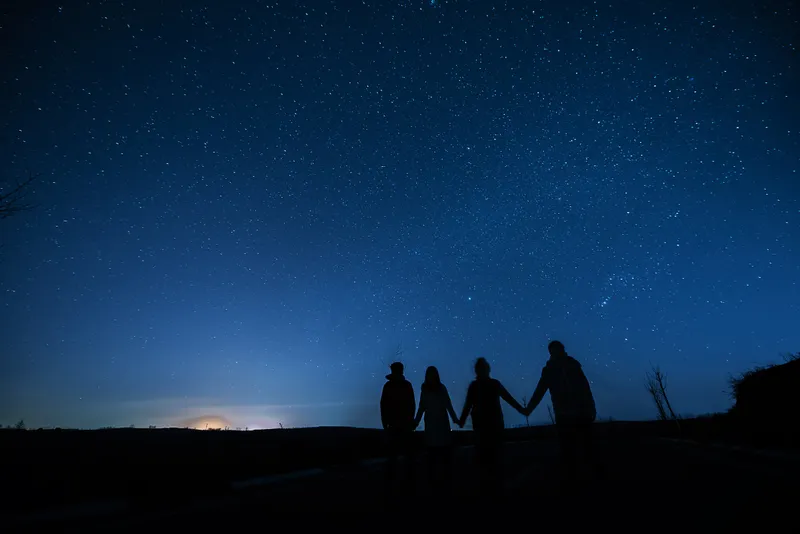
Is it a psychologist's job to convince someone they haven't seen what they think they've seen?
Not necessarily. When I've got my scientist hat on, if you ask me for my view on a particular topic, I'll give you my honest opinion and my reasons for believing what I believe.
I'm not necessarily out to convince you that you're wrong and I'm right.
And that applies even more in other paranormal contexts.
Anything that relates to, say, life after death. If you've got a situation where somebody is taking great comfort from feeling the spirit of a dearly departed loved one is still around and they're getting comfort from that, I wouldn't want to take that away from them. Why would I?
As far as I'm concerned, anybody can believe anything they like as long as it doesn't have negative impact on other people.
If you then ask for my opinion on what they're talking about, well I'll give it to you, because that's what science is all about.
Science is all about what's true, not necessarily what makes us feel good.
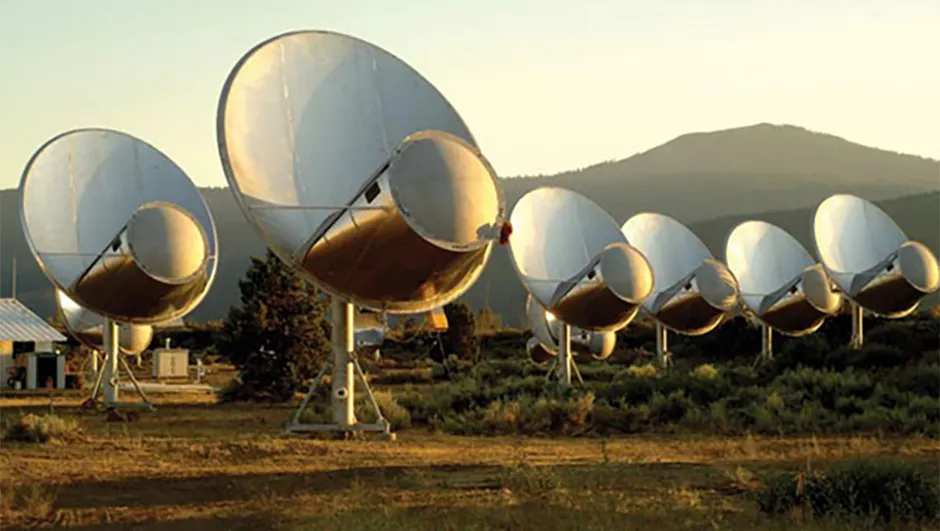
Is belief in spacecraft visiting Earth more credible than other phenomena, because it's likely there could be life beyond Earth?
To my way of thinking, yes, because I have kind of considerable respect for the laws of physics and the idea there's life out there that might conceivably make contact with Earth.
There'd be all kinds of problems to surmount, vast distances for example, but you can imagine a scenario with suspended animation or advanced technology of some sort.
It doesn't actually require us to say the laws of physics as we currently understand them are completely wrong.
They may be incomplete, but I don't think they're wrong.
But other kinds of concepts within the paranormal would require a complete turning upside down of our current scientific view in major aspects.
As Carl Sagan was very fond of saying, extraordinary claims require extraordinary evidence.
The evidence has to be so much stronger for those kind of paranormal claims, for us to take them seriously, because we've got a vast amount of evidence that generally supports the conventional scientific worldview.
Where will your research take you next?
There are a lot of topics that I either barely touch on or even don't touch on at all in the book.
One possibility I've been thinking about is that of false memories.
Looking at false memories as they relate to things like alien abduction claims and past life memory claims and so on, has implications for legal cases in the real world.
Another possibility for a follow up would be a look at false memory from different angles, as it relates to the weird stuff, as it relates to real life legal cases and just what it tells us about the way memory works in general.
It's a fascinating topic. So that's another idea I'm toying with, but I haven't decided yet. I'll see how well this book does first.
The Science of Weird S**t is published by MIT Press. Find out more about Chris's work by following him on Twitter @chriscfrench.
